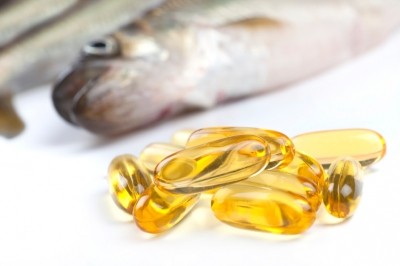Natural antioxidants could stabilise flaxseed omega-3 encapsulations
The vegetarian friendly oil, known for its high content of the alpha-linolenic acid (ALA) has potential uses in enriching foods and beverages with the heart healthy omega-3 fatty acid as a replacement for fish oils. However, as with many sources of omega-3, stability of the oil against oxidation is a problem when used in food formulations.
Writing in the European Journal of Lipid Science and Technology, the authors of the new study evaluated the effects of incorporating polyphenolic-enriched fractions on the oxidative stability of microencapsulated flax – or linseed – oil, finding that use of the antioxidant acted to further extend the oxidative stability of the encapsulated oils.
The research team, led by Mónica Rubilar from the Universidad de La Frontera, Chile, noted that microencapsulation “is effective in retarding or suppressing the oxidation of unsaturated fatty acids” such as flax oil – whilst natural polyphenols from plant extracts could also prove effective in blocking lipid oxidation of microencapsulated oil.
The research team found that the natural polyphenols improved oxidative stability of the encapsulated oils, meaning that the omega-3 rich oils were protected against rancidity.
“The results of this study demonstrated the importance of the addition of natural antioxidants such as fractions of murta leaf extract in microencapsulated flaxseed oil to increase its resistance to oxidation,” said Rubilar and her team.
“The use of process technology and a natural additive is expected to increase storage stability and enable its use in dry foods such as instant products,” they said.
Flax stability
Flaxseed oil, is a valuable source of omega-3 fatty acid – which generally contains between 52–60% ALA.
“The ALA content is what makes it valuable as an essential component of healthy food,” noted Rubilar and her team. “However, the main problem in the quality of oils lies in lipid oxidation during storage or food processing.”
They noted that lipid peroxidation is one of the primary mechanisms of quality deterioration in foods, adding that the oxidation can lead to a reduction in quality and deteriorations in flavour, colour, texture, and nutritive value.
The researchers used an extract of polyphenols from Murta leaves – a wild shrub growing in the Coast and pre-Andean mountains of southern Chile.
“The main objective of this study was to evaluate the effect of the incorporation of polyphenolic-enriched fractions from murta leaf on the oxidative stability of linseed oil microencapsulated by spray drying,” explained Rubilar and her colleagues.
As the first part of the study, the researchers performed a chemical characterization of fractions from murta leaf crude extract – separating the components by gel permeation chromatography.
“The oxidative stability of linseed oil microencapsulated by spray drying in storage with and without antioxidant was subsequently evaluated,” they said.
Source: European Journal of Lipid Science and Technology
Published online ahead of print, doi: 10.1002/ejlt.201100230
“Polyphenolic fractions improve the oxidative stability of microencapsulated linseed oil”
Authors: M. Rubilar, E. Morales, R. Sáez, F. Acevedo, et al













